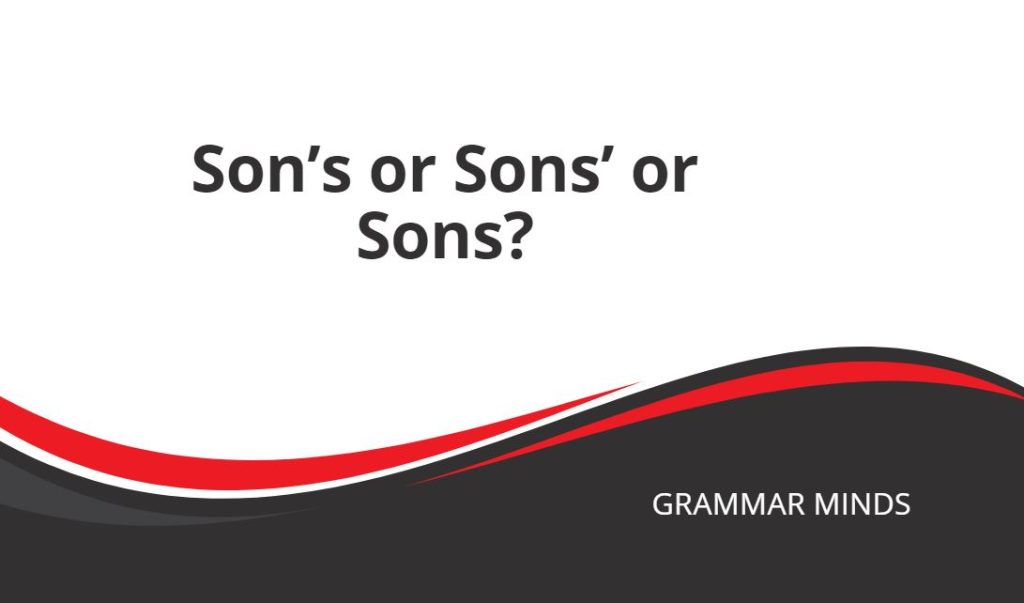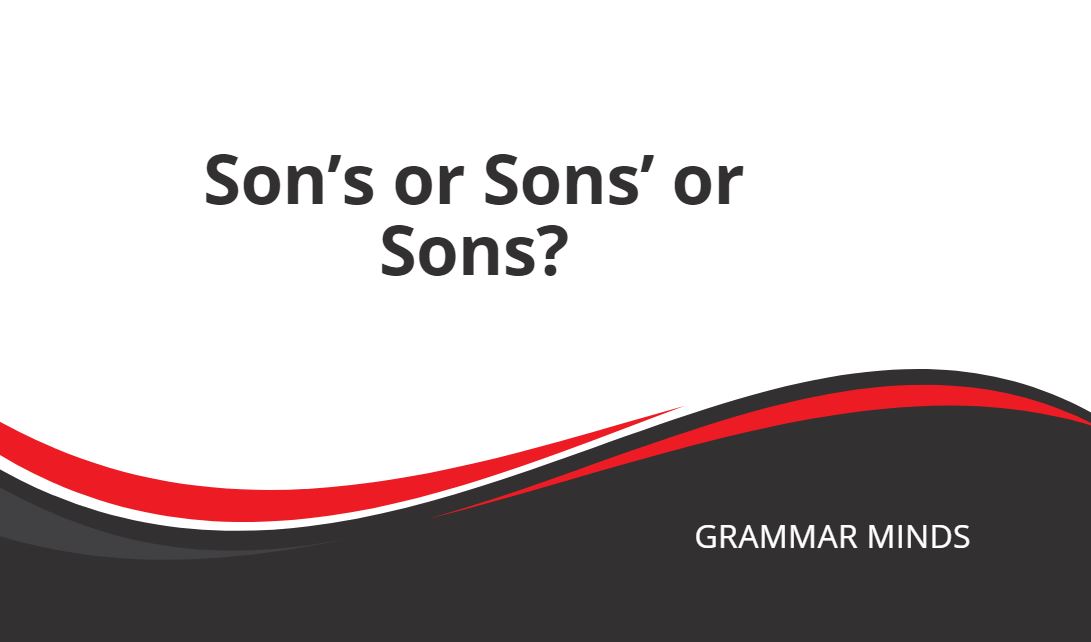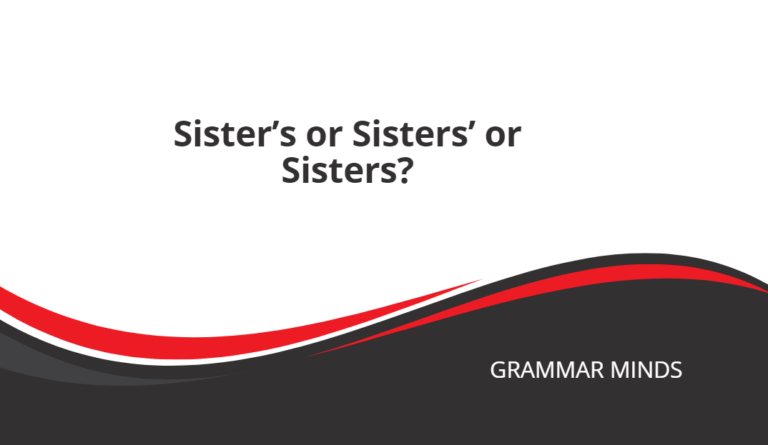The word son’s is the singular possessive form of son. E.g., “The son’s toy was broken.” Furthermore, sons’ is the plural possessive form. E.g., “The sons’ room was messy.” Also, sons is the standard plural of son. E.g., “The sons played in the yard.”

The following chart provides a summary of the different forms of son.
| Form | Example Sentence |
| Singular | Son |
| Plural | Sons |
| Singular possessive | Son’s |
| Plural possessive | Sons’ |
You can make the plural form by adding an “s” to son.
Furthermore, you can make the singular possessive by inserting an apostrophe and an “s” after son. In comparison, the plural possessive is made by adding an apostrophe to the end of sons.
In the following examples, you can see the different forms of the word son in context:
- Singular: The son called his mother.
- Plural: The sons went on a trip together.
- Singular possessive: The son’s bike was red.
- Plural possessive: The sons’ toys were scattered across the floor.
The difference between the singular and plural possessives is that we are talking about one son in the singular possessive sentence. However, in the plural possessive sentence, we are talking about something that belongs to multiple sons.
Now you have learned the basics of how to use the possessive forms of son. However, you should keep reading so you can learn more about each form and how to use them.
Son’s
The word son’s is the singular possessive of the word son. Therefore, you use it when you want to say that something belongs to one son.
You can mention things that are a physical part of a son or part of their belongings.
- The son’s hat was found in the car.
- Our son’s performance was excellent.
Sons’
The word sons’ is the plural possessive of son. Therefore, you use it when you want to indicate that something belongs to multiple sons.
The plural possessive can refer to physical objects owned by sons, as well as things like activities or responsibilities.
- The sons’ jackets were hung by the door.
- Someone needs to check the sons’ homework.
Furthermore, the term sons’ can also refer to events or spaces explicitly designed for sons, as well as periods of time that sons spend together.
- The sons’ bedroom was newly decorated.
- They enjoyed the sons’ weekend at the cabin.
Sons
The term sons is the standard plural of the word son. Therefore, you use it when you want to talk about more than one son in non-possessive sentences.
You can use the plural version to mention a specific number of sons.
- Three sons joined the family dinner.
Also, you can use it to refer to all sons in a general sense.
- Sons often follow in their fathers’ footsteps.







